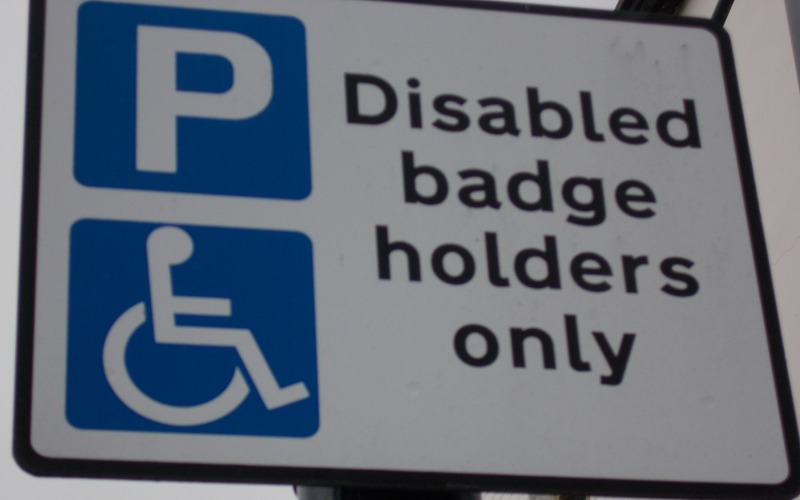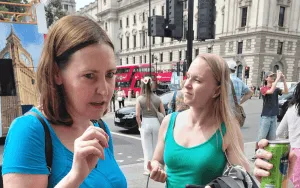Disabled campaigners have welcomed new rules that will make it easier for autistic people and others with invisible impairments to secure blue parking badges, but they have also raised concerns about how they will work in practice.
The new government rules for councils are likely to lead to a significant increase in the number of disabled people eligible for blue badges across England.
Disabled people with blue badges in many parts of the country already find it almost impossible at peak times to find a parking space.
But the government has also announced a new taskforce aimed at clamping down on fraud and misuse of blue badges, which it hopes will ease the pressure on spaces.
The government was forced into making the changes to blue badge guidance because of its previous decision in 2014 to tighten the rules, which led to a judicial review legal case taken on behalf of an autistic man with learning difficulties.
That led to the Department for Transport (DfT) agreeing to review the guidance, and eventually introduce the new rules for local authorities in England, which will come into force on 30 August.
Justin Tomlinson, the minister for disabled people, said: “It’s unacceptable that people with hidden disabilities still face discrimination when using disabled facilities like parking spaces.
“Extending the Blue Badge scheme is a watershed moment in ensuring those with hidden disabilities are able to travel with greater ease and live more independent lives.”
Under the new rules, a disabled person should be automatically eligible for a blue badge if they receive eight points or more under the “moving around” activity of the mobility component of personal independence payment (PIP), or they receive the PIP mobility component and also score at least 10 points under the “planning and following journeys” activity because making a journey causes them “overwhelming psychological distress”.
Others who do not qualify automatically could still be eligible for a badge if they pass an assessment to decide if they cannot walk or undertake a journey without creating a risk of serious harm, causing “very considerable psychological distress”, or experiencing very considerable difficulty when walking.
Helen Dolphin, co-founder of the People’s Parking scheme and a blue badge expert, welcomed the extension of the scheme as long as there were also efforts made to “sort out the fraud and misuse” in the current system.
She said the new guidance and the anti-fraud taskforce “have to go hand in hand”.
Dolphin, herself a badge-holder, said: “Blue badges are being misused by friends and family quite a lot of the time, and they are also being used fraudulently.”
She has heard from an industry expert that fake blue badges have been sold door-to-door in London for £100 each.
Kat Humble, communications officer for Autistic UK, which is run by and for autistic people, said the new rules would certainly “be a great relief to many” but Autistic UK was “sceptical” that the change would be effective because there were not even enough accessible parking bays to meet the demands of current badge holders.
She said: “Increasing the number of badge holders without also ensuring that local councils have the funds to increase available parking bays will simply mean that all badge holders will receive a poorer service and experience a reduction in their ability to access services.”
She also warned of problems with the crackdown on fraud and misuse, including the risk of a “backlash” against people with invisible impairments, who “face a different kind of discrimination, that of people not believing that they are disabled”.
But she said: “Obviously, there is a lot of room for improvement and a crackdown, properly executed, would be very welcome.”
Autistic UK also wants to see a crackdown on misuse of accessible bays by non-disabled people, along with a requirement on landowners to enforce proper use of the bays on private land.
She said: “A combination of these measures would go a very long way towards ensuring that disabled bays were only used by badge holders, which would mean a great many more bays were available to serve the influx of new people in the scheme.”
The National Autistic Society (NAS) said the changes would be “life-changing” for many autistic people.
Jane Harris, NAS director of external affairs, said: “The old rules were too focused on people’s physical ability to walk, and changes to government guidance in 2014 meant that many autistic people couldn’t get a badge.”
Authorities in Scotland and Wales have already made changes aimed at addressing the problems with the 2014 guidance.
DfT has previous predicted that its new rules will see a six per cent increase in blue badge applications (53,000) in the first year, and an “initial surge” of 44,000 new badges (a five per cent increase).
It will provide councils with £1.7 million in the first year of the new guidance to help with the expected increase in applications.
Last year, the Local Government Association estimated that the theft of blue badges had risen by 45 per cent in 12 months and was six times higher than in 2013.
The taskforce will look at ensuring badges are used correctly and improving public understanding of the scheme.
A note from the editor:
Please consider making a voluntary financial contribution to support the work of DNS and allow it to continue producing independent, carefully-researched news stories that focus on the lives and rights of disabled people and their user-led organisations.
Please do not contribute if you cannot afford to do so, and please note that DNS is not a charity. It is run and owned by disabled journalist John Pring and has been from its launch in April 2009.
Thank you for anything you can do to support the work of DNS…

 Disabled MP who quit government over benefit cuts tells DNS: ‘The consequences will be devastating’
Disabled MP who quit government over benefit cuts tells DNS: ‘The consequences will be devastating’ Minister finally admits that working-age benefits spending is stable, despite months of ‘spiralling’ claims
Minister finally admits that working-age benefits spending is stable, despite months of ‘spiralling’ claims Timms says cuts must go ahead, despite being reminded of risk that disabled claimants could die
Timms says cuts must go ahead, despite being reminded of risk that disabled claimants could die